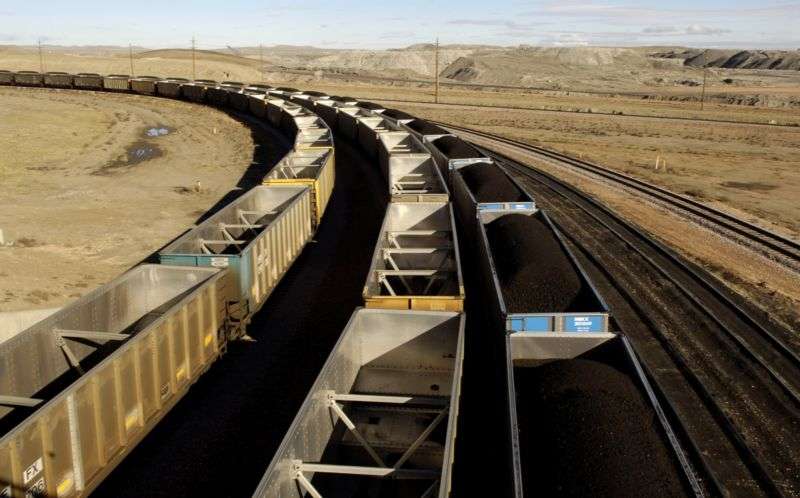
Third-largest coal producer in the US files for bankruptcy

Cloud Peak Energy, the US’ third-largest coal mining company, filed for Chapter 11 bankruptcy late last week as the company missed an extension deadline to make a $1.8 million loan payment.
In a statement, Cloud Peak said it will continue to operate its three massive coal mines in Wyoming and Montana while it goes through the restructuring process. Colin Marshall, the president and CEO of the company, said that he believed a sale of the company’s assets “will provide the best opportunity to maximize value for Cloud Peak Energy.”
Cloud Peak was one of the few major coal producers who escaped the significant coal industry downturn between 2015 and 2016. That bought it a reputation for prudence and business acumen.
But thinning margins have strained the mining company as customers for thermal coal continue to dry up. Coal-fired electricity is expected to fall this summer, even though summer months are usually boom times for coal plants as air conditioning bolsters electricity demand. That’s because cheap natural gas and a boost in renewable capacity have displaced dirtier, more expensive coal.
According to the Casper Star Tribune, Cloud Peak shipped 50 million tons of coal in 2018. The paper noted that after the bankruptcy filing, “speculation almost immediately began that Cloud Peak would sell its mines.”
Similar mine sales have struggled in Wyoming’s Powder River Basin. A deal to buy a struggling mine in Kemmerer, Wyoming, recently fell through due to bonding issues. Bonding is essentially insurance that covers the mine’s clean up after closure.
According to the Star Tribune, a Wyoming landowner’s group called the Powder River Resource Council echoed some concerns about Cloud Peak’s ability to pay for mine reclamation after its bankruptcy. “We are gravely concerned that employees’ and retirees’ pensions and healthcare benefits will be taken away, and that millions of dollars of ad valorem taxes owed to Wyoming counties for coal already produced will be left unpaid,” wrote the council’s vice chairman, Bob LeResche, in a statement. “Our greatest fear is that reclamation of Cloud Peak’s large mines will cease, and that financial assurances required by law will prove inadequate.”
Cloud Peak reportedly paid $700,000 in local land taxes just before it filed bankruptcy, but it left an additional $8.3 million production tax bill unpaid.




